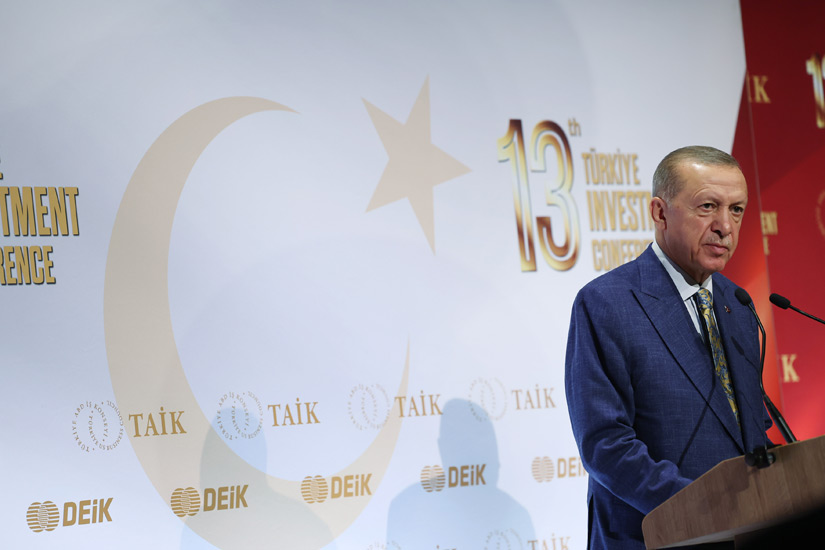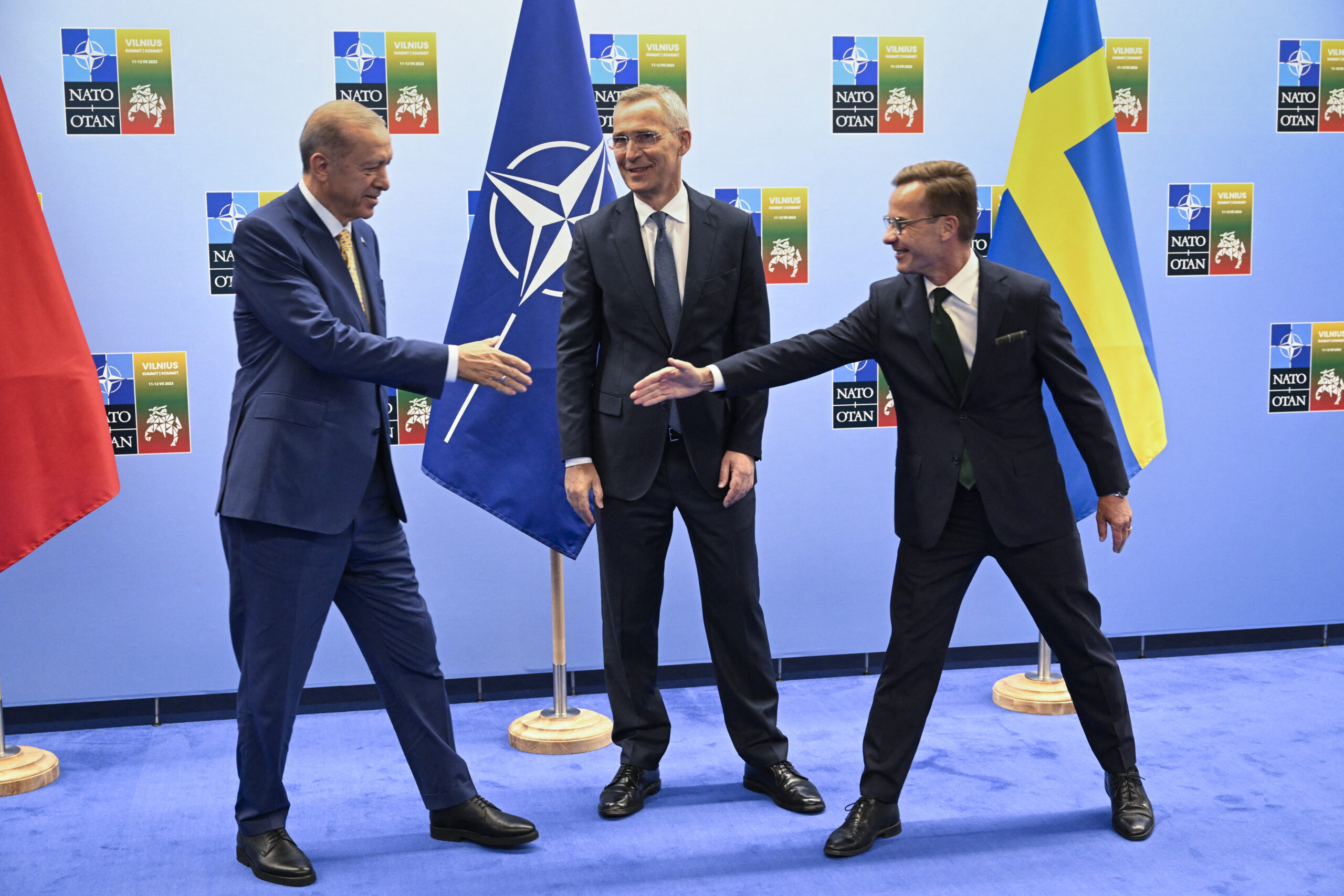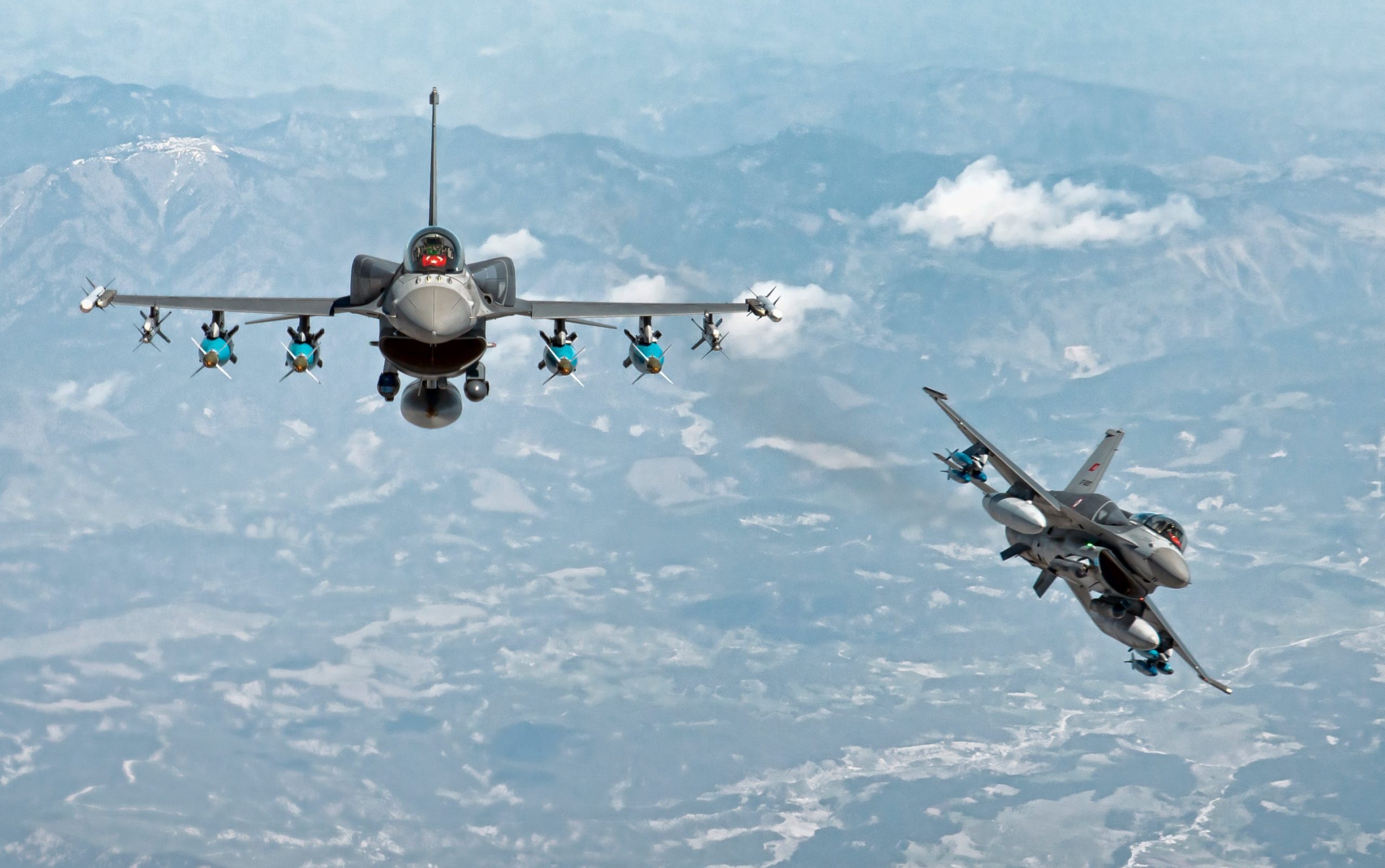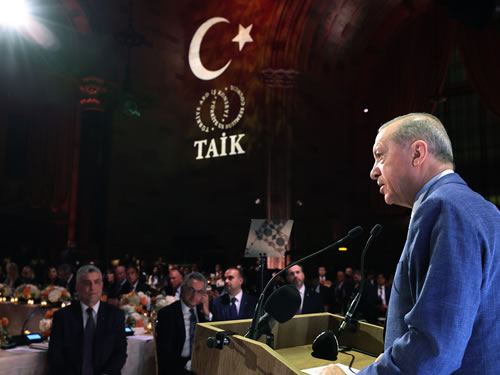Levent Kenez/Stockholm
Turkish President Recep Tayyip Erdoğan on Wednesday reiterated his call for the US government to lift sanctions on Turkey’s defense industry during his visit to New York for the United Nations General Assembly.
During his address at the 13th Turkish Investment Conference in New York, Erdoğan emphasized the significance of economic and trade interactions between Turkey and the United States in the context of their bilateral relations. He highlighted that over the past decade bilateral trade between the two countries has expanded by a factor of 1.5, with the US Turkey’s second-largest export destination and fifth-largest source of imports last year. Erdoğan also noted that by the end of 2022 the bilateral trade volume had surged by more than 15 percent, surpassing $32 billion.

Nevertheless, there is a message that Erdoğan sought to deliver through his speech. He called for the removal of obstacles in arms sales imposed by the US.
Turkey’s most significant procurement challenge involves acquiring new F-16 fighter jets from the United States to upgrade its outdated fleet. In 2021 the US administration officially removed Turkey from the F-35 Joint Strike Fighter program due to Ankara’s purchase of a Russian S-400 missile system in 2017.
In February US senators from both the Democratic and Republican parties wrote a letter to President Joe Biden urging him to delay a $20 billion F-16 sale to Turkey until Sweden and Finland’s NATO accession is approved. Finland officially became NATO’s newest member on April 4.
In his speech Erdoğan expressed his optimism about addressing issues related to unilateral actions, such as imposing additional tariffs on steel and aluminum exports from Turkey. He stated, “Furthermore, we anticipate the prompt removal of impediments hindering the advancement of our cooperation in the defense industry.”
Erdoğan emphasized that Turkey has begun to address its issues in troubled countries and pointed out that they have demonstrated a strong determination to resolve problems with two countries that have significant lobbying power, particularly in the United States, namely Israel and Greece. However, there was no reference made to Sweden’s NATO membership.,

During a press conference at the G20 Leaders Summit in New Delhi on September 10, Erdoğan voiced his displeasure with the United States, reacting to linking the F-16 sales to Turkey’s approval of Sweden’s NATO membership. “Unfortunately when it comes to F-16s, our friends are taking matters into their own hands and saying, ‘Sweden, Sweden’,” he said.
“You keep saying ‘Congress, Congress’ for everything. I also have a congress, my congress is the Grand National Assembly of Turkey [TBMM],” he added.
Erdoğan emphasized that he is not solely responsible for deciding on its NATO membership and suggested that Sweden must fulfill its obligations in this regard.
Turkish media interpreted Erdoğan’s failure to have a bilateral meeting with US President Joe Biden in New York following the G-20 summit in India as a message from the US that there would be no progress in bilateral relations, including the sale of F-16s, without concrete steps from Turkey on Sweden’s membership. However, Erdoğan also said in New York that Turkey is not currently prepared to approve Sweden’s membership.
Turkey faces difficulties in sourcing the materials needed for its ambitious defense industry projects. Nordic Monitor previously reported that in an interview with a Turkish TV station on September 4, 2022 İsmail Demir, the former head of the Presidency of the Defense Industry (Savunma Sanayii Baskanligi, SSB) admitted that the agency faced challenges in developing power packs including engines and transmissions for various defense projects. It’s not only the parts but also a shortage of qualified engineers that is hindering progress, he said.

“The engine issue is a known [problem]. As for trained personnel and expertise, we also don’t have extensive experience. There are a limited number of experts [in Turkey],” said Demir, who was sanctioned by the US over Turkey’s purchase of the Russian S-400 long-range missile system.
Turkey has several national aircraft and tank projects, but they have suffered setbacks because of the difficulty in finding engines and transmission systems to power the equipment. The Erdoğan government has invested heavily in manufacturing engines domestically, with limited success thus far in the testing and integration stages.
In May Muhsin Dere, Turkey’s former deputy minister of defense, admitted that the government cannot fully meet the needs of the military in terms of supplying it with new equipment and weapons due to the poor state of the Turkish economy, at a meeting of a pro-government business platform run by Erdoğan family members that brings together industrialists from around İstanbul.












